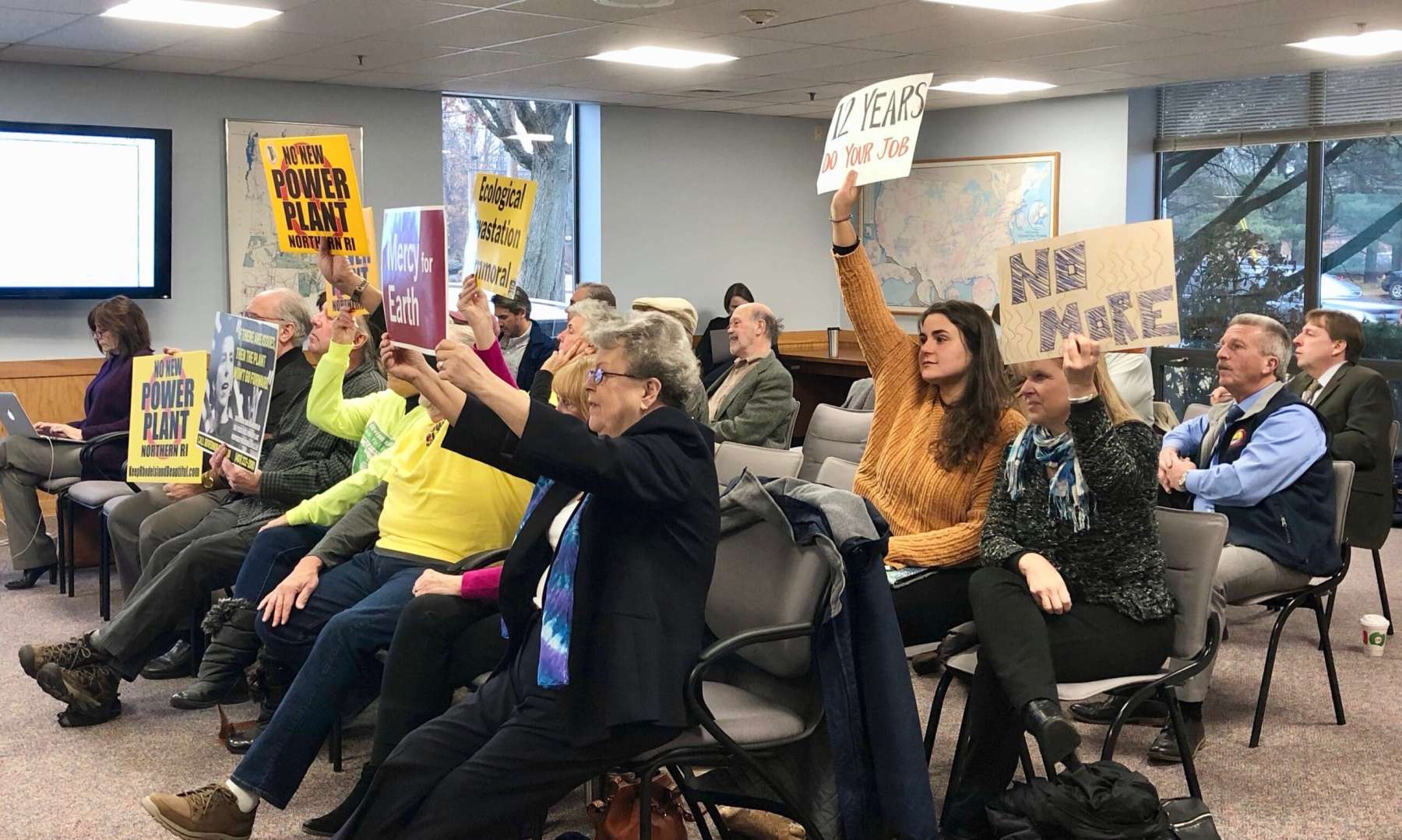Under cross examination, the testimony of Invenergy’s expert witness Ryan Hardy falls apart
Conservation Law Foundation (CLF) Senior Attorney Jerry Elmer and Attorney for the Town of Burrillville, Michael McElroy, spent hours cross-examining Invenergy‘s expert witness, Ryan Hardy, before the Energy Facilities Siting Board (EFSB) on Tuesday and Wednesday. At issue is the question need: Does New England need Invenergy’s proposed $1 billion fracked gas and diesel oil burning power plant in the
January 10, 2019, 10:07 am
By Steve Ahlquist
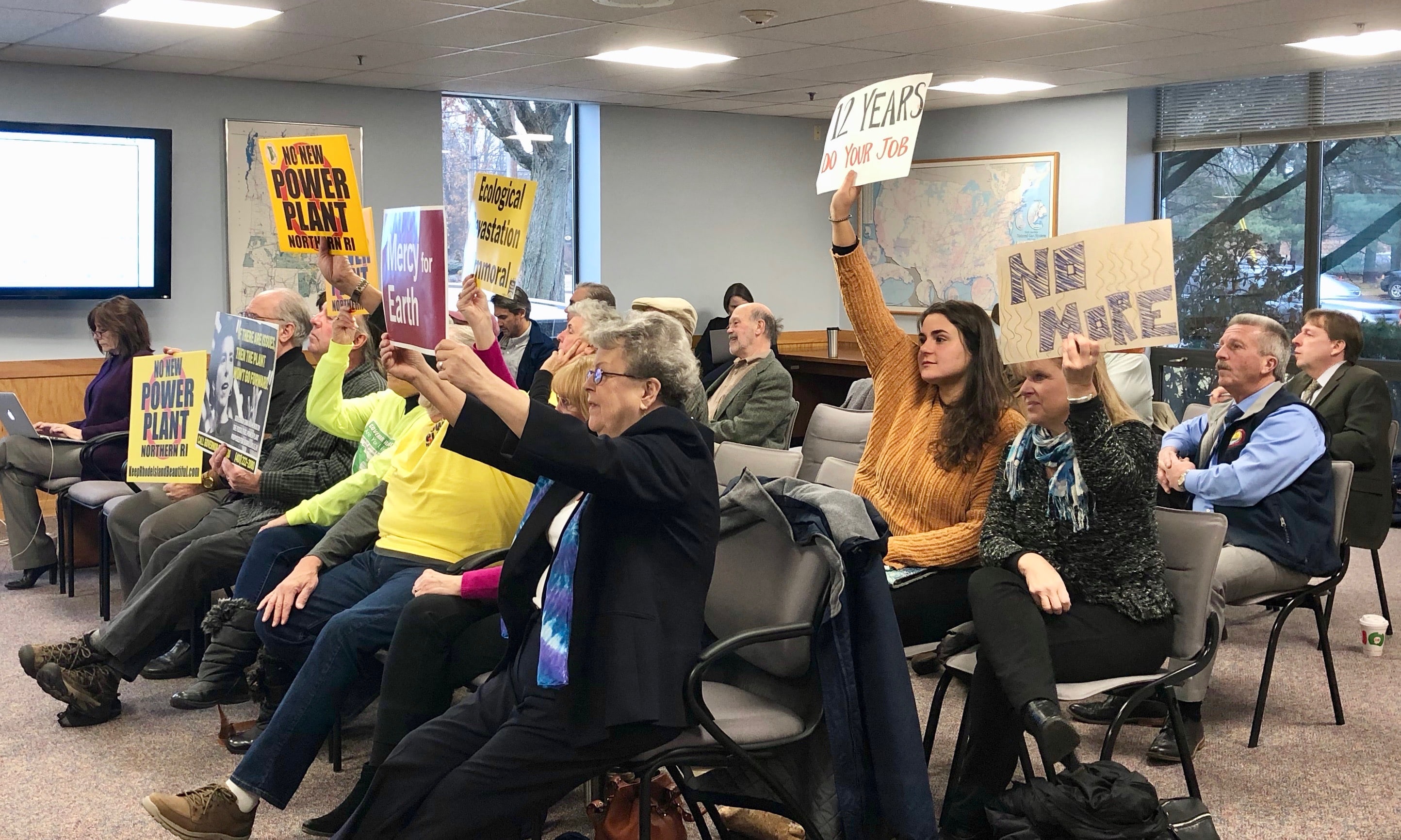
Conservation Law Foundation (CLF) Senior Attorney Jerry Elmer and Attorney for the Town of Burrillville, Michael McElroy, spent hours cross-examining Invenergy‘s expert witness, Ryan Hardy, before the Energy Facilities Siting Board (EFSB) on Tuesday and Wednesday. At issue is the question need: Does New England need Invenergy’s proposed $1 billion fracked gas and diesel oil burning power plant in the center of the pristine forests of northwest Rhode Island?
The way the EFSB conducts its hearings is different from what the public is used to when they see trials in the judicial system. All testimony before the EFSB is pre-filed, in written form, and the hearings are opportunities to cross-examine the witnesses.
Ryan Hardy is wrong
Elmer spent a lot of time with Hardy’s testimony establishing that when it comes to the question of whether or not the proposed power plant is needed, Hardy has repeatedly failed to be accurate. In the two videos below, taken from the complete video of Hardy’s testimony near the bottom of this post, Elmer spends ten minutes asking Hardy whether or not he was correct in his predictions about the energy market’s need for the power from the proposed energy plant.
[To understand the questioning, you may need to know a little about the way energy markets work. In order to secure the lowest possible prices, ISO New England, the organization that controls New England’s energy grid, holds annual auctions, known as Forward Capacity Auctions (FCA), into which owners of power plants bid. Plants that successfully bid into these auctions are awarded Capacity Supply Obligations (CSO). A CSO is a promise from a power plant operator to deliver energy when needed at the agreed upon price.]Despite the fancy programs and proprietary algorithms used by Ryan Hardy’s company when providing rosy predictions about the future need for Invenergy’s proposed power plant, Hardy has been shown to be wrong about every single prediction he has made. Remarkably, that hasn’t stopped Hardy from claiming that the plant will be needed in the future.
On Wednesday, when asked by Invenergy’s Chicago-based lawyer Michael Blazer about the future need of their proposed power plant, Hardy said it was needed.
The question of need
When Hardy stated that Invenergy’s proposed power plant is needed, he made that prediction based on the fact that the plant had a CSO in previous FCAs. Now that Invenergy has no CSOs for its proposed power plant, Hardy, and Invenergy have changed their tune, saying that a CSO is not a necessary condition for deciding that a power plant is needed.
Note also that under questioning, Hardy admits that his conclusion of need rests on two facts no longer in evidence.
[CREC stands for Clear River Energy Center, Invenergy’s name for their proposed power plant.]As to the question of need, Attorney Elmer notes that on both days of Hardy’s cross examination, “EFSB members made a so-called ‘Record Request‘ (basically a formal request for information) to Invenergy. The EFSB,” writes Elmer, “asked Invenergy to provide information on results of ISO-run Forward Capacity Auctions – specifically on the surplus of capacity that has been procured both in the zone that includes Rhode Island and in all of New England.”
Elmer writes:
“CLF is beyond delighted that the EFSB members are focusing on this issue. Since the EFSB opened the Invenergy docket in 2015 (yes, this is the fourth year of this litigation!), CLF has posted a detailed analysis of every single ISO-run Forward Capacity Auction immediately after the auction results were publicly released. There is, of course, a very good reason that CLF published these FCA results as soon as they were known; it is the same reason that Invenergy has not publicized those results:
“Every ISO-run Forward Capacity Auction that has been run since Invenergy filed its application has shown that Invenergy is not needed.
“Here are the results and analysis of every ISO-run FCA since the Invenergy application was filed. As I said in one of these pieces, ‘ISO figures don’t lie.’ :
Reporting on the surplus of capacity in FCA-10 (held February 2016):
Reporting on the surplus of capacity in FCA-11 (held February 2017):
Reporting on the surplus of capacity in FCA-12 (Held February 2018):
“The bottom line here is this: the EFSB is focusing on the crucial issue in the case: whether or not this power plant is needed. The EFSB is focusing on the crucial data points that show that the plant is not needed: the existing surplus of capacity without Invenergy. This is good for opponents of Invenergy.”
Beyond Invenergy’s control?
Elmer also asked Hardy about Invenergy’s contention that delays in the permitting process were “entirely beyond” the company’s control. Invenergy made this contention in a filing with FERC (Federal Energy Regulatory Commission).
Under cross-examination Hardy agreed that the delays were not “entirely beyond” the company’s control.
Proprietary information
In this video snippet, Hardy reveals proprietary information, information that was not to be made public. The information revealed was subject to a non-disclosure agreement.
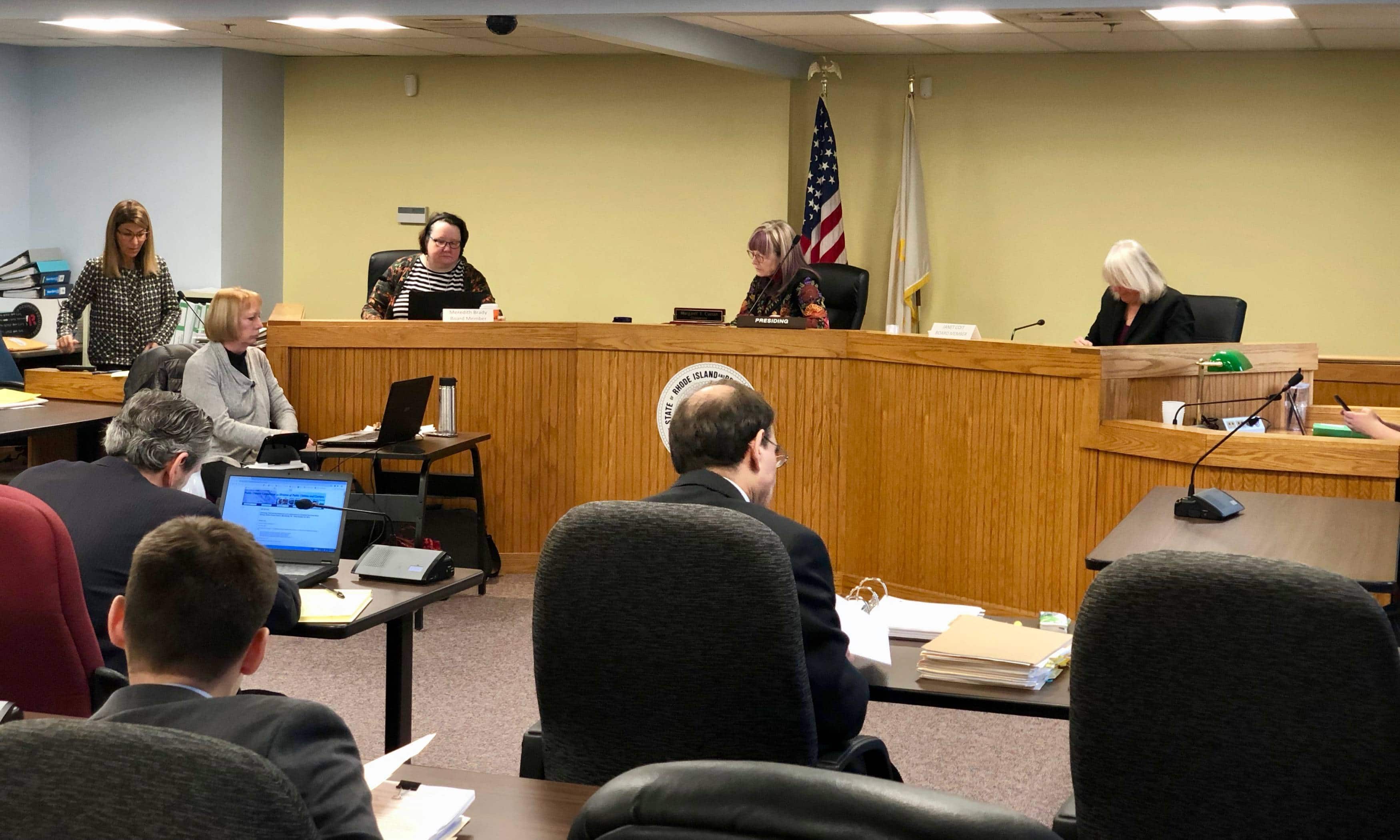
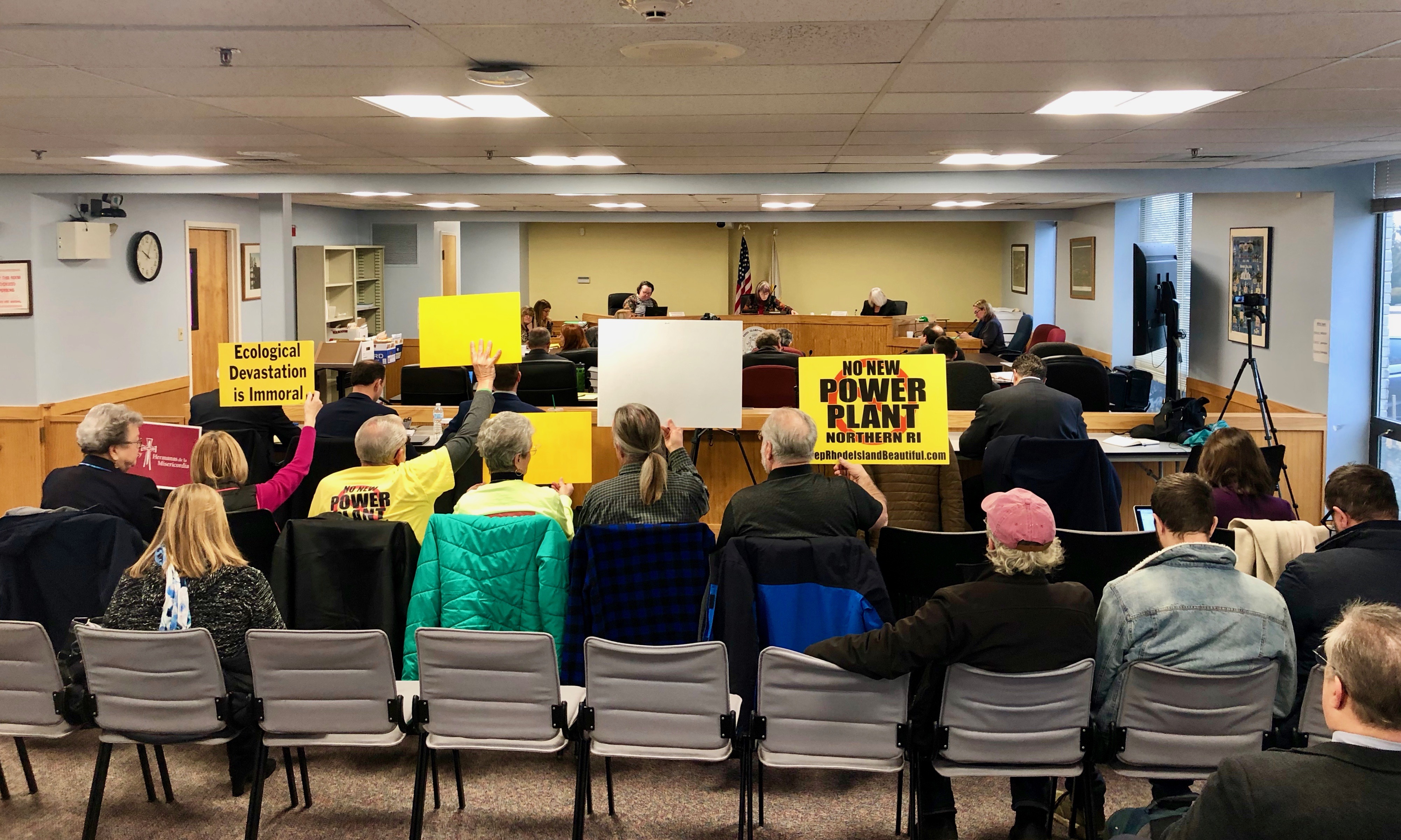
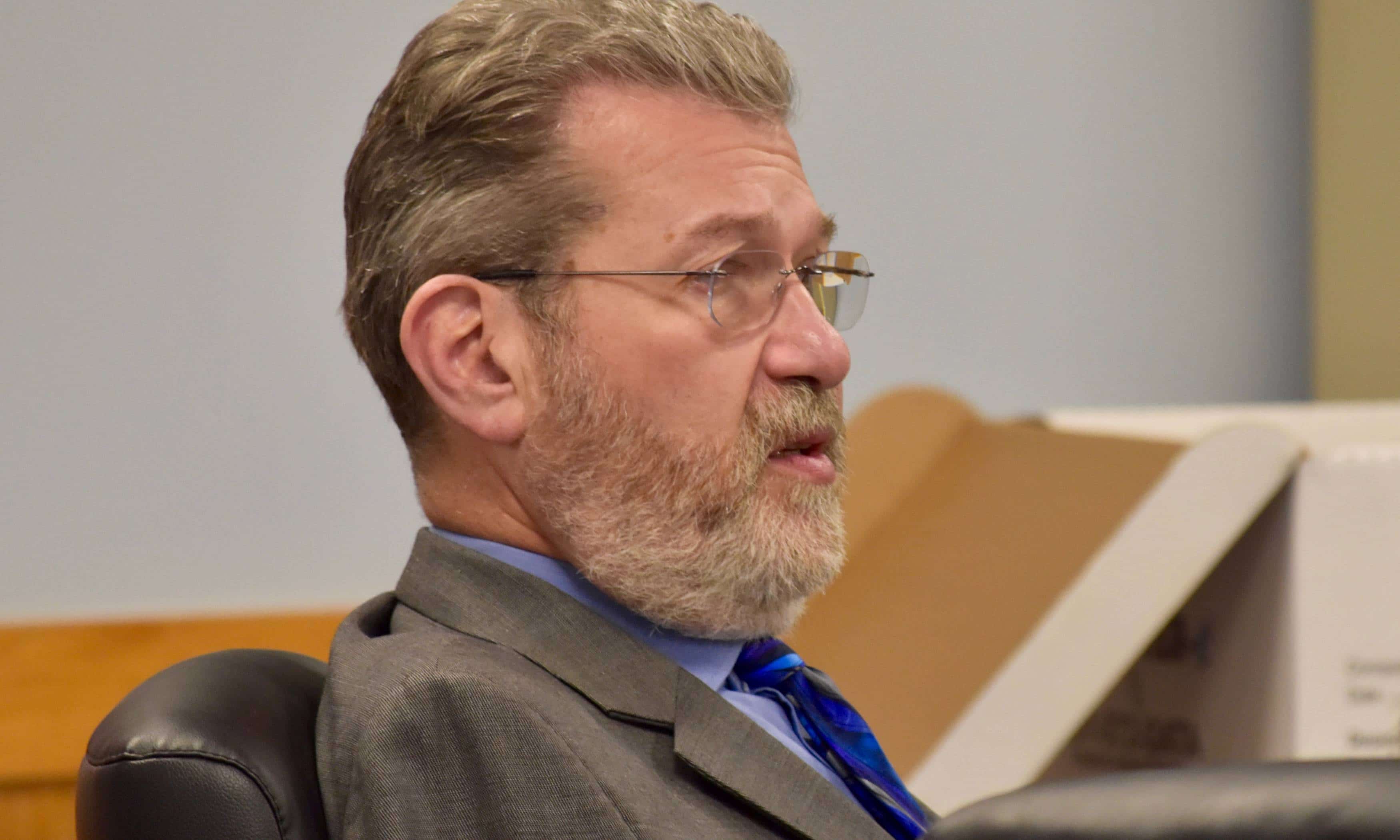
Invenergy’s Michael Blazer 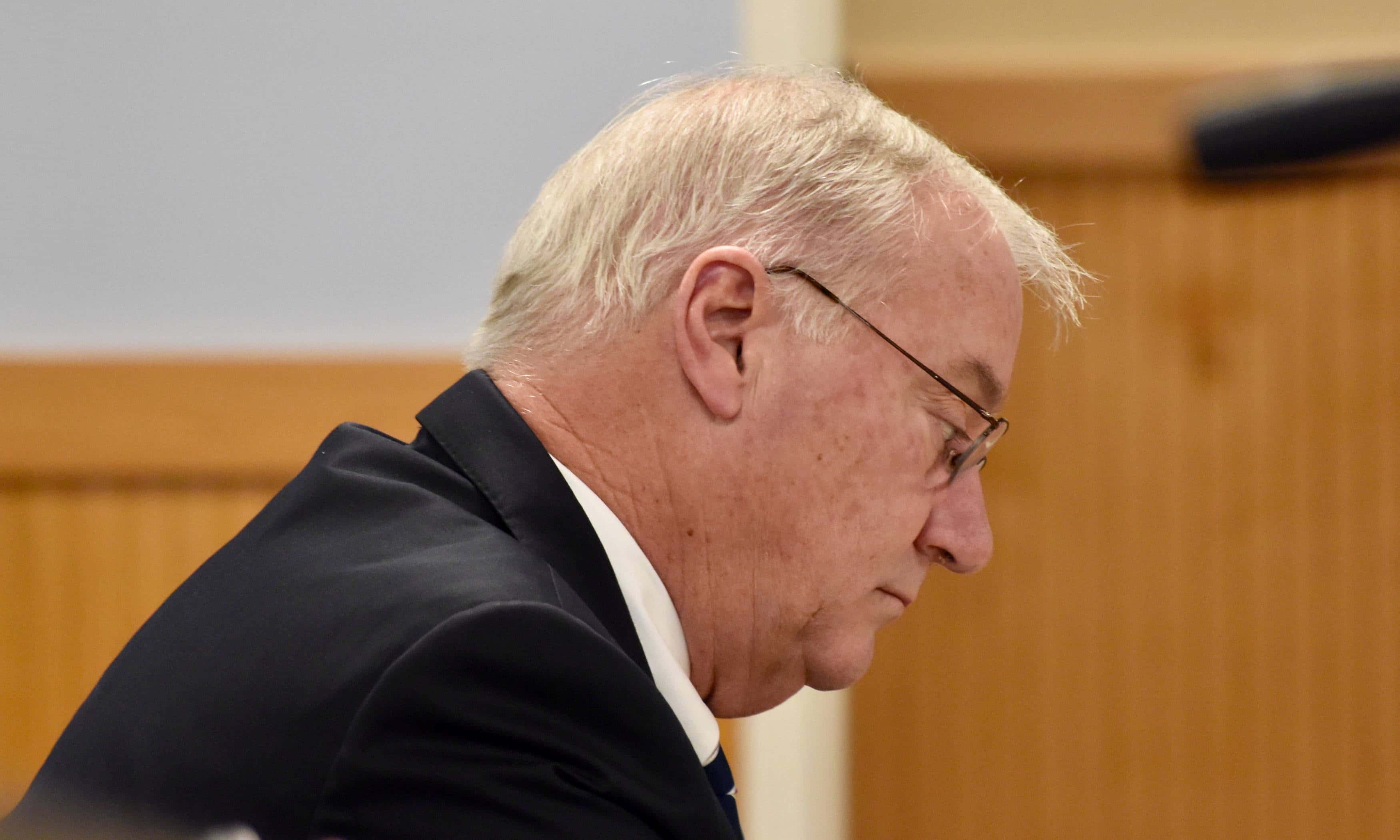
Invenergy’s John Niland 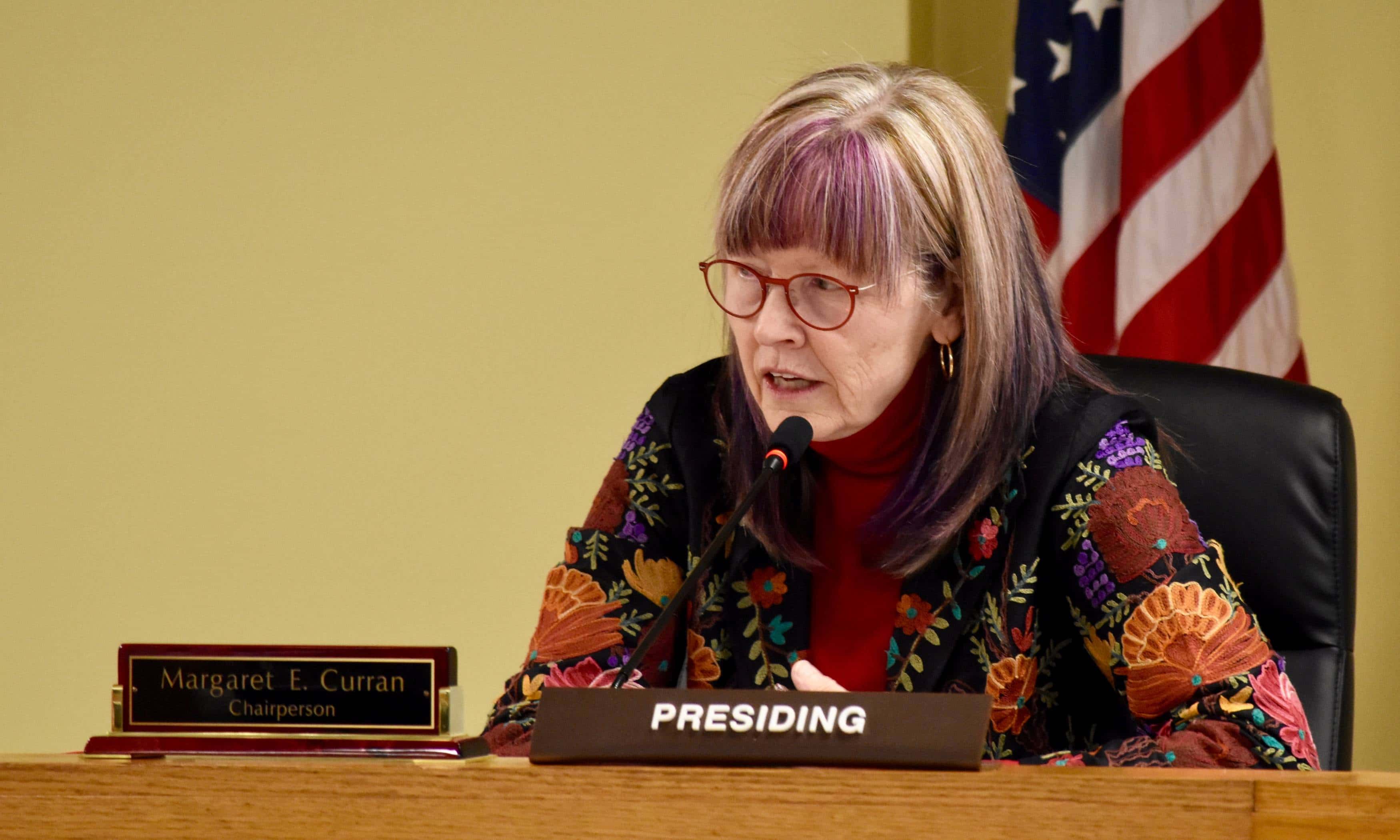
Margaret Curran 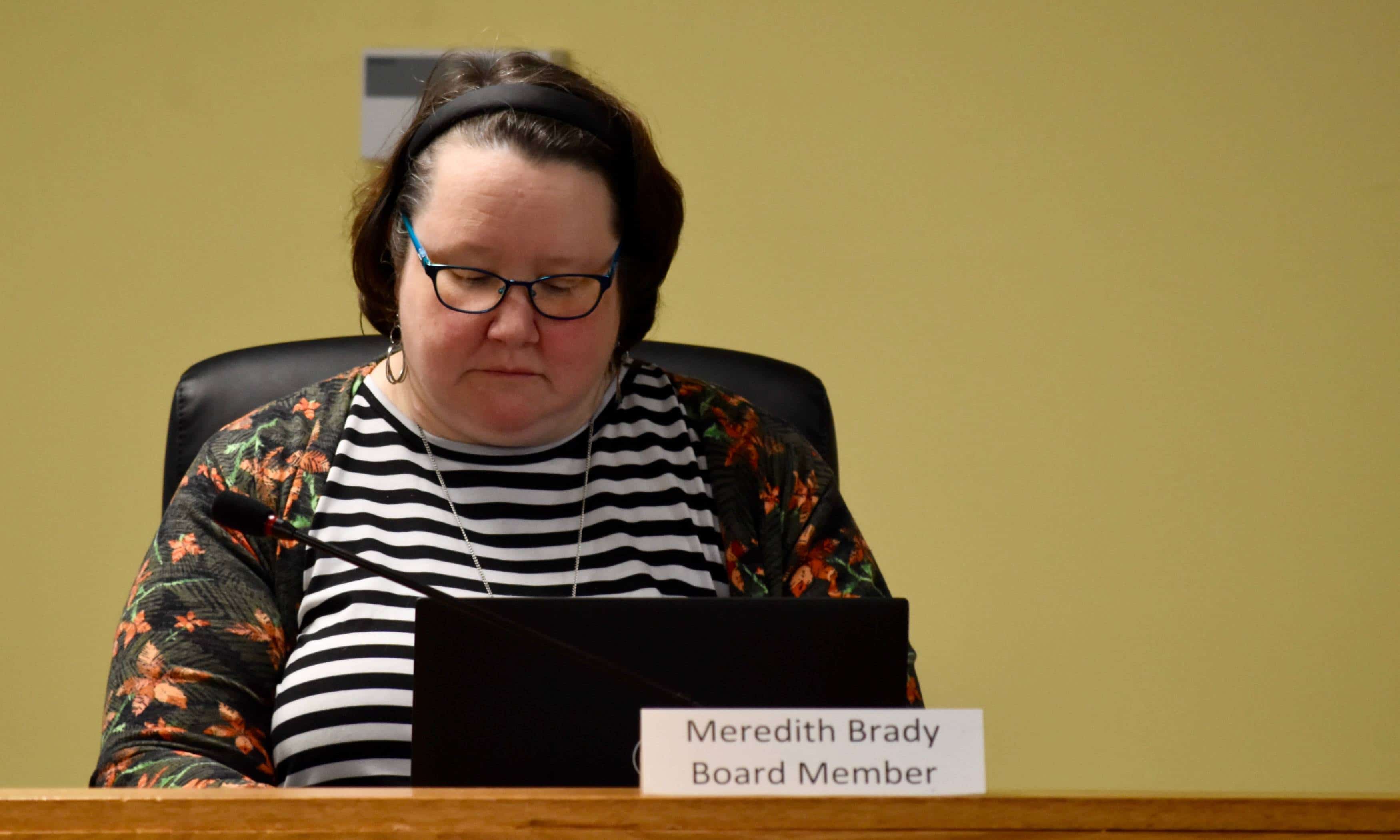
Meredith Brady 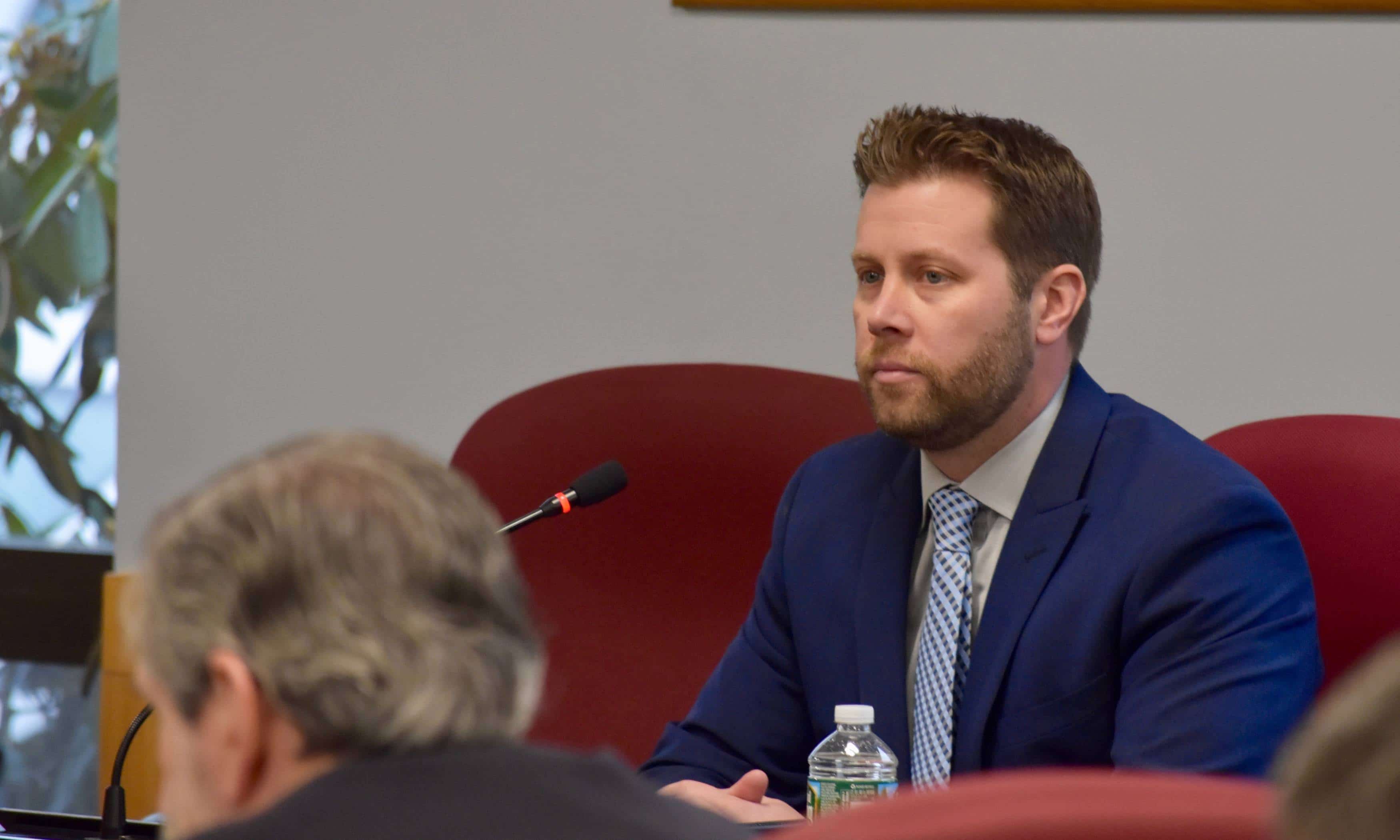
Invenergy’s Ryan Hardy 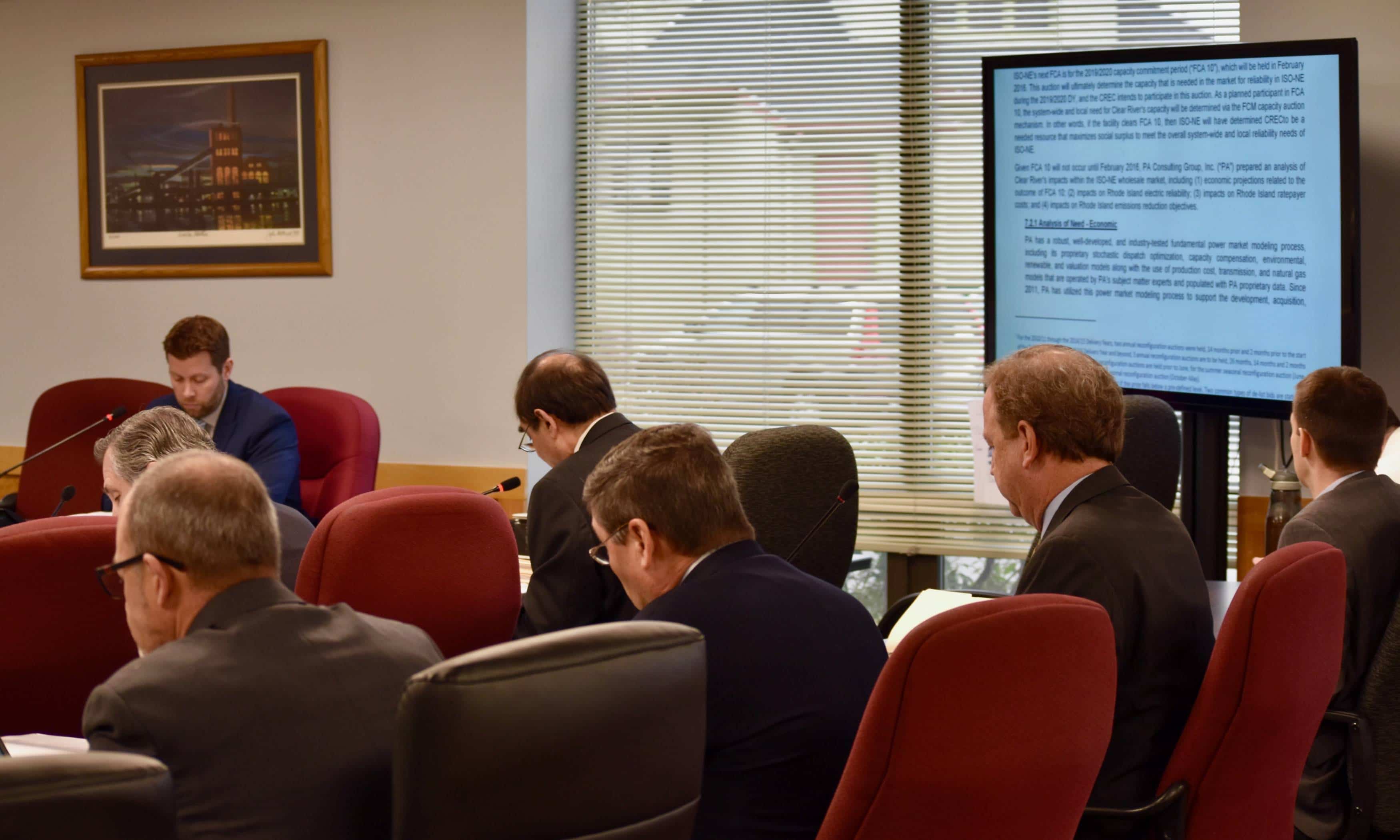
Here is the full cross examination of Ryan Hardy before the EFSB on January 8 and 9:
UpriseRI is entirely supported by donations and advertising. Every little bit helps:
Become a Patron!

